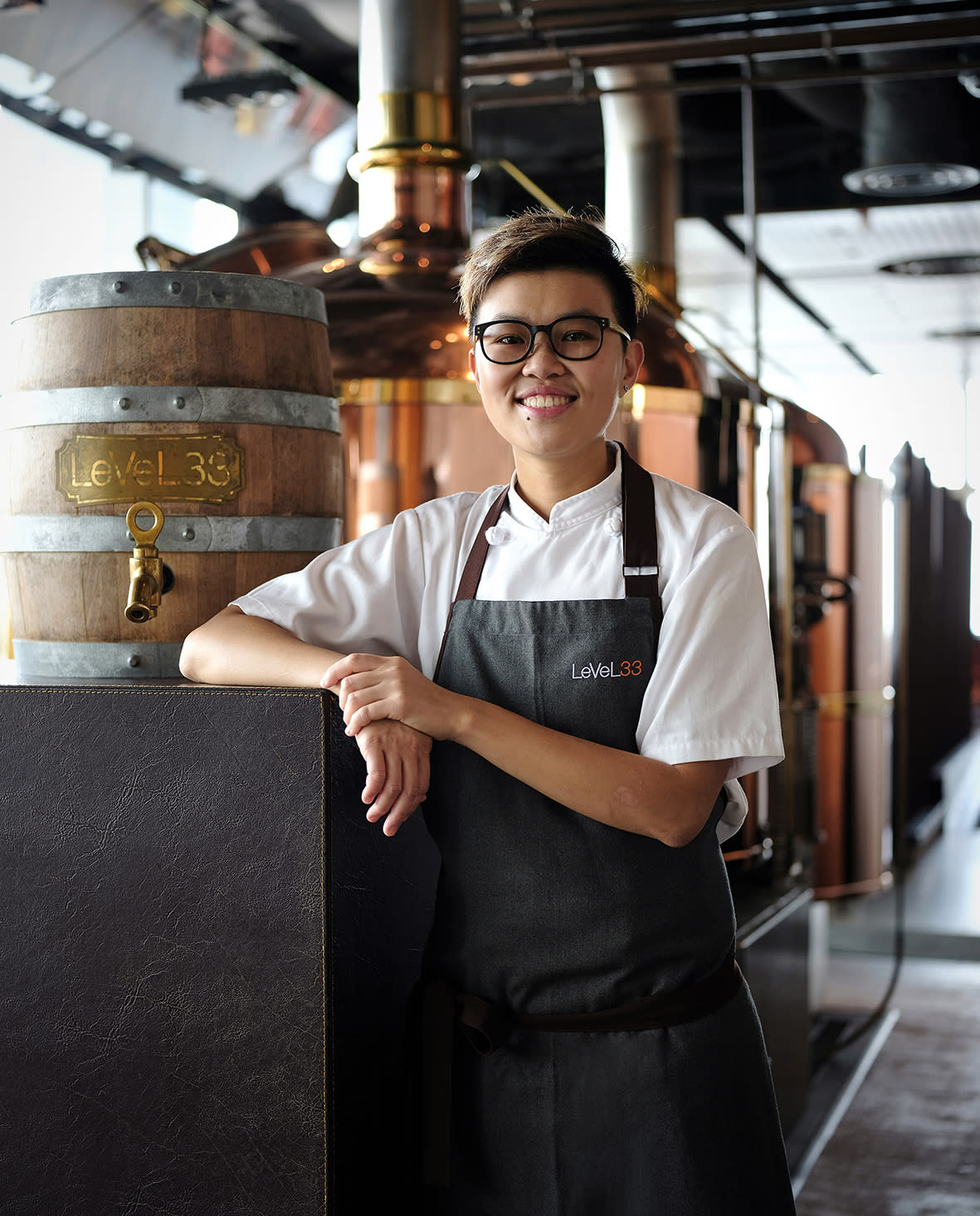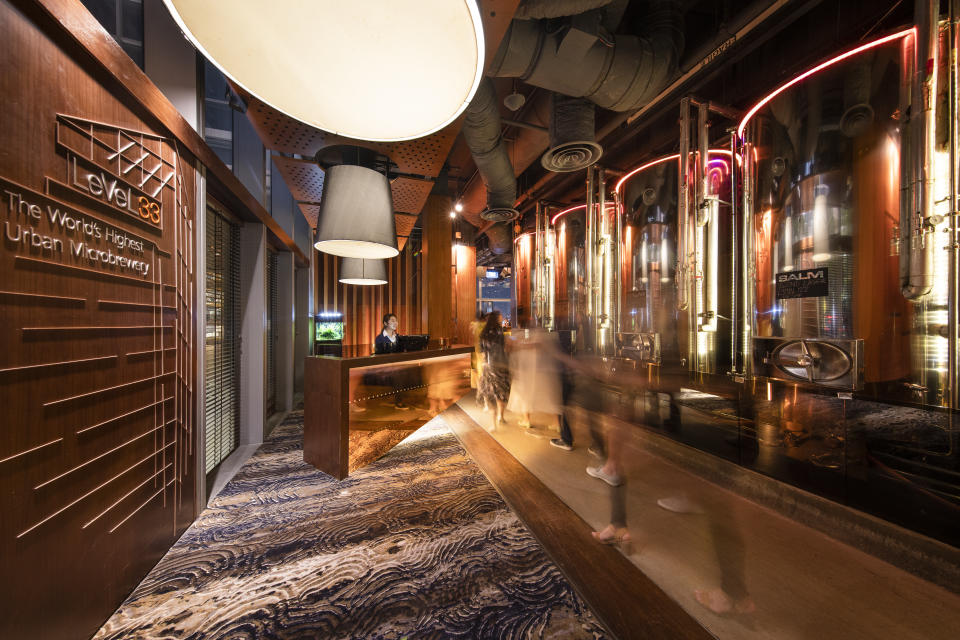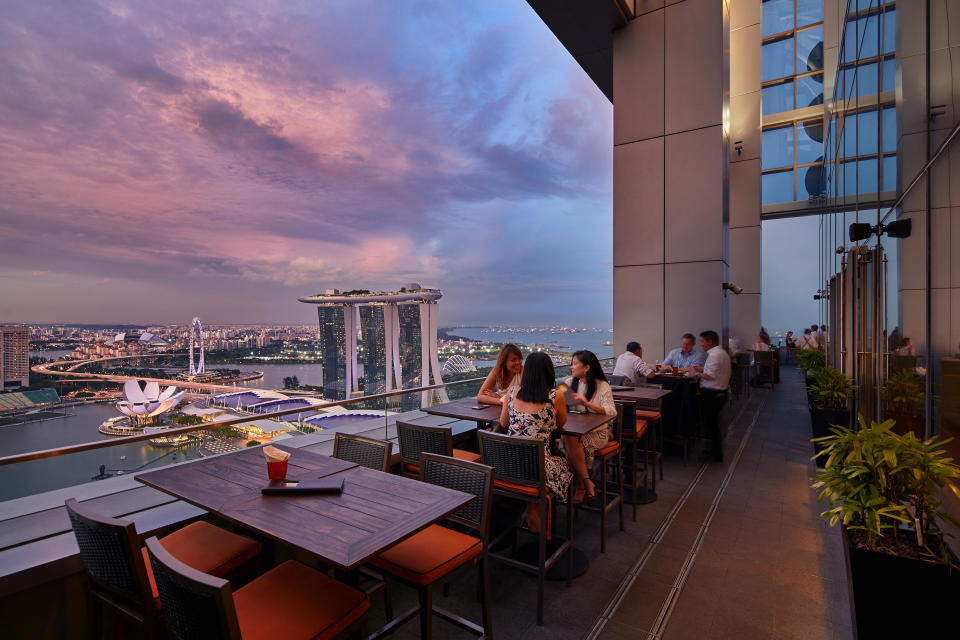INTERVIEW: Chef ArChan of LeVel33 says, food to her is family

SINGAPORE — "I hope you didn't forget to press record after I've given you all these interesting answers," ArChan quips with a laugh mid-way through our interview. I assure her that I haven't, but all the same, I discreetly check that my phone is still recording. It's five in the evening on a Wed, and the restaurant is simmering in anticipation of a busy dinner service that will stretch to 10 at night. This hardly fazes ArChan who appears in front of me mid-sip of a latte, dressed in sombre shades of blue and black. ArChan is the Executive Chef of LeVeL33, here to bring a breath of fresher air to a restaurant already perched 33 floors up and in its 8th year of operation. Her oeuvre includes the upscale modern Australian restaurant Cutler and Co., and Supernormal, an Asian-inspired casual eatery. It's been close to a year since her tenure as captain of this ship. One major renovation and five weeks of closure later, I get the sense that she feels much less encumbered and is now fully embracing of a restaurant that she can finally be proud to call home.
Zatiman Astha: What was your childhood like growing up, and how has this affected the way you live?
Archan: I lived in Kowloon, right in the heart of Hong Kong. My dad is the eldest in his family, which makes me the eldest grandkid. My family is neither rich nor poor, but my parents grew up poor. So for the most part of my childhood, I didn't really have to work very hard to get what I want. But my parents instilled in me the value of studying hard and saving money for the future, which had a significant influence on me. Even now, as an executive chef, I will still run for the bus if I can catch it or I will catch the last train home. It's a good attitude to have—to be frugal. I guess this extends to the way I cook too; how do I use every element of the ingredient so that there's zero waste?
READ MORE:
Food review: “You can't and won't go wrong with LeVeL33”
Food review: The menu at Tablescape is uncomplicated but brimming with deliciousness
Inside Raffles Singapore: Asia's all-suite grande dame returns refreshed and lovelier than ever
Growing up, my family often go over to my grandparent's place for dinner where my grandma will cook. During Chinese New Year, there will be 15 of us enjoying a meal together. Food to me is family. I'm really blessed in the sense that I grew up in an environment where I have the freedom to decide what I want to do. My parents never forced me to be who they want me to be, so I had the luxury of really thinking about exactly what it is that I want to do in my life. Whatever I want to do was something I must really love. One of the subjects that I remember enjoying was Psychology. In Hong Kong, to further one's studies in Psychology, you have to do exceptionally well in school, but I was a very average student. So, when I was 20, I decided to study Catering and Social work at University. If I'm not a chef now, I'd probably be a social worker.
Z: How do you describe what you do to someone you're meeting for the very first time?
A: The first thing I tell them is that I'm a chef. But being a chef is not really about cooking. I see myself more as a bridge—I'm a bridge between the kitchen, front of house, the suppliers, the guests. I'm in the centre of everything. If I come to work in a bad mood, I know that everyone else will be severely affected. My job is to translate the goals and motivations of my bosses into a language that everyone working with me understand. It's not always about the money. If the goal is to make a lot of money, to be honest, opening a restaurant is not one of the ways. For LeVel33, the boss wants to provide a good experience for the guests, which also aligns with what I believe. At the end of the day, what makes me happy is making other people—the staff, the kitchen, the customers—happy too. Cooking is just one way to do that.
I'm actually against people calling me 'chef'. Yes, I understand and appreciate that my colleagues are showing respect to me, but, you see, when I'm talking to people in the restaurant, I don't call them 'HR Manager' or 'Marketing Manager'. I call them by their name. We can still respect each other even if we're calling each other by our names instead of our titles.

How would you describe a Singaporean's relationship with food?
Singapore and Hong Kong citizens are similar. We both love to eat. But I love the fact that Singaporeans embrace all types of food—from the Michelin star restaurants to hawker food. I'm actually glad that Singaporeans are not as critical as I expected them to be. *laughs* The other thing I realised is that Singaporeans like to go back to their comfort food. When I first arrived, a supplier told me that he has this amazing Kingfish which I brought in. It didn't sell. It takes a lot of effort to convince the front-of-house and the customers to try something new. But put chicken, seabass or steak on the menu, and it will fly out the door very fast. To them, it's safe.
On a scale of 1-10, how successful do you think you are as a chef, and why?
7.85. For me, 8 is the mark I want to hit. Here, at LeVel33, I'm pretty satisfied with what I've achieved. But on a personal basis, looking at the whole culinary industry, there's still a lot of room for me to grow and contribute to. I'm very blessed to have been able to study in Australia and execute those skills in Singapore. But how do I bring this education back to Hong Kong? There's still a lot of things I want to achieve. Not just as a person but as a member of the culinary industry. How do I give back?
What was the biggest struggle you've faced as a chef that you have never told anyone before?
The biggest struggle I've ever had to face is here at LeVel33. I imagine LeVel33 as a mountain, and I'm standing right at the edge of it looking down. Here, I am hired as an executive chef—a position of giving. I have to perform to initiate change. I was very ambitious.
When I first reached Singapore, I wondered where the supermarket was at. You must understand that I come from Australia, where the supermarkets are on the ground floor. In Australia, if we run out of produce, I can simply go to the nearest supermarket around the corner to buy some, but here, where do I go? It sometimes feels like I'm at my wit's end, you know. And I've had many moments like that.
When I have a day off, what do I do with my free time? In Australia, I was there to study. So whatever free time I have is spent studying. Here, I didn't have any friends, and my juniors don't want to hang out with their boss. There was a disconnect. I wouldn't know where to go if I had to see a doctor or a dentist or to get new glasses. Which was strange because when I moved to Australia at 20 years old, I didn't experience any feelings of loss or homesickness. If anything, that should be the time I experienced these feelings. In fact, I was very happy then. But here, the expectations are much, much higher. That was something I had to cope with, but thankfully things are now so, so much better.

What are your thoughts on the current trend of sustainability?
I think there will be people who misinterpret the word or are just following the trend. If we really look at it on the macro level, our environment is the umbrella that holds society and the economy together. Even if people do it because it's a trend, there are still positive outcomes to it. And for me, that would be most important. Sustainability also drives creativity. That's why I love Korean cuisine. Take, for example, what they do with radish. The top part of the radish is very fibrous. So what the Koreans do is dehydrate it, marinate it, cook it, braise it, and make it very tasty. They take what is usually inedible and make it into something delicious.
What is the one important quality a chef needs that are often overlooked?
Being hospitable. This industry is not about what I want to cook for you to eat. It's about me cooking something that you want to eat or me making something that you don't know you wanted but eventually will learn to enjoy. It's not about me, the chef. It's about you, the consumer. As humans, we have an ego. It's harder for chefs because when we put food on the table, we're putting our heart out. So when we are criticised, it's tough to take. At the end of the day, we have to ask ourself: Do we want to cook beautiful food that no one eats or do we want to make people happy? When a couple comes in, and it's their honeymoon, can we do something to make their dinner more memorable? The business side is essential, but making people happy is too.
It's synergy. Money does not come just because you want to be rich. Look at Apple and Microsoft. They are profitable because they make products that make things better for people. As a chef, we need to give more thought about how people will feel when they eat the food you make. The diners cannot see all this hard work you put in the kitchen to make this plate. So if you don't take the time to taste the food or plate it well, then it affects the experience. This industry is really about people. If you understand them first, they will appreciate you. One of my favourite quotes is, 'People don't care how much you know until they know how much you care.'


